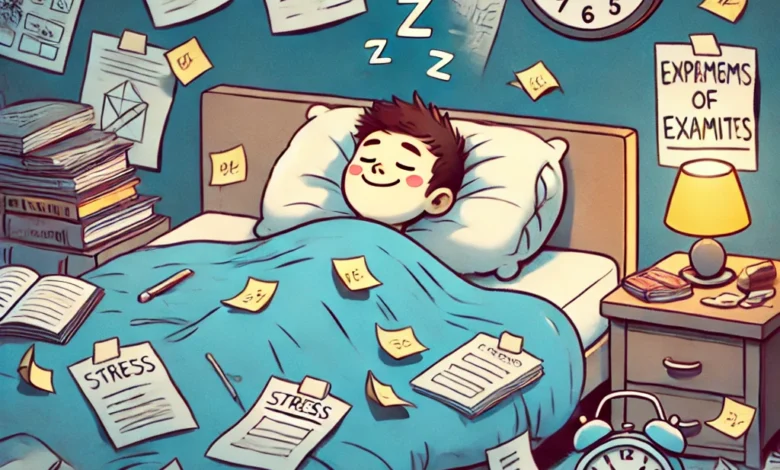How I Sleep at Night Knowing I’m Failing All My cl

Failure can often feel like a heavy burden, especially when we strive for success in areas that matter to us, such as Classroom Learning (CL) or any form of personal growth. It’s a harsh reality many of us face, yet few are willing to openly talk about it. I find myself in that position quite frequently—failing all my CL tasks, falling short of the expectations I’ve set for myself, and struggling to catch up. Despite these challenges, I’ve learned to sleep at night without letting these failures consume me. In fact, I’ve come to realize that failure isn’t the problem—how I deal with it is.
Embracing Imperfection
One of the first steps to sleeping peacefully with the knowledge of failure is accepting that imperfection is a natural part of life. We often put immense pressure on ourselves to be perfect, and when we inevitably fail, it feels like the end of the world. However, no one is perfect, and perfection isn’t even the goal. The goal is growth, learning, and resilience. When I embraced this mindset, I started seeing my failures not as personal shortcomings but as learning experiences. I realized that being imperfect is okay; it’s what makes me human and contributes to my growth.
Reframing Failure as a Lesson
Failure can be a tough pill to swallow, but it’s important to reframe how we view it. Instead of seeing failure as a definitive endpoint, I’ve learned to see it as an opportunity for improvement. Every failed task, every missed deadline, every subject I didn’t master is simply a stepping stone to success. Failing at CL doesn’t define me—it teaches me where I need to improve. I’ve come to understand that learning is not a straight path; it’s full of twists, turns, and bumps along the way. So, when I fail, I take a step back and ask myself, “What can I learn from this?” Once I do, failure loses its sting, and I’m able to use it to better myself.
The Power of Rest and Letting Go
I used to lie awake at night, replaying my failures over and over in my mind. The anxiety would eat away at me, making it almost impossible to fall asleep. But I’ve realized that rest is essential, not just for physical health but for mental clarity as well. Sleep gives my mind the chance to process everything I’ve been through during the day, including my failures. By letting go of my thoughts before bed, I can rest peacefully, knowing that I’ve done what I could for the day. Worrying about failure doesn’t help; in fact, it often hinders progress. I now prioritize sleep because it’s during that time that my subconscious works on problems, helping me find solutions that I may not have thought of when I was awake.
Managing Expectations
A lot of the stress surrounding failure comes from unrealistic expectations. We often set the bar too high for ourselves, not giving ourselves enough room to fail or make mistakes. This creates a constant feeling of inadequacy when we fall short of those expectations. To sleep better at night, I’ve learned to manage my expectations. This doesn’t mean lowering the standards I set for myself, but rather adjusting them to be more in line with what is actually achievable. I now focus on realistic goals that I can work towards step by step. Breaking larger objectives into smaller, manageable tasks makes them less overwhelming. This helps me avoid the paralyzing effect of perfectionism, allowing me to focus on progress rather than perfection.
Taking Small Steps Forward
Even when it feels like I’m failing all my CL tasks, I remind myself that any progress—no matter how small—is still progress. Rather than trying to fix everything at once or beating myself up over a failed task, I take it one step at a time. If I didn’t understand something in class, I focus on that specific area instead of the entire course. If I missed a deadline, I break down what I need to do to catch up and move forward. Each small effort adds up over time, and while the process may seem slow, it’s still a process of improvement. By focusing on small victories rather than dwelling on my failures, I avoid feeling overwhelmed and make continuous strides toward my ultimate goals.
Letting Go of Comparison
One of the biggest hurdles when dealing with failure is the tendency to compare ourselves to others. Social media, classmates, or colleagues may all seem to be doing better, and it’s easy to get discouraged. However, I’ve realized that comparison only leads to feelings of inadequacy and frustration. Everyone has their own journey, and their success doesn’t diminish my progress. I now focus on my personal path, appreciating the unique challenges I face and how I handle them. By letting go of comparison, I find peace with my own pace and celebrate my growth, no matter how small it may seem compared to others.
Seeking Support
Dealing with failure alone can feel isolating. It’s easy to think that you’re the only one struggling or falling behind, but the reality is that everyone faces setbacks. Seeking support has been one of the most beneficial changes I’ve made in how I cope with failure. Whether it’s talking to a friend, family member, or mentor, sharing my concerns allows me to release the pressure. I no longer carry the weight of failure on my own. Others can offer guidance, reassurance, or even just a listening ear. This support network is crucial for maintaining mental well-being and getting through tough times. Knowing I’m not alone in my struggles helps me feel more hopeful and less burdened by the fear of failure.
Read also: EmergingTechs.net Stay Updated Always with the Latest Tech Trends
Conclusion
In the end, learning how to sleep at night knowing that I’m failing all my CL tasks isn’t about pretending the failures don’t exist—it’s about changing my relationship with them. Instead of seeing failure as something to avoid at all costs, I’ve learned to embrace it as part of my learning process. By accepting imperfection, reframing failure as a lesson, prioritizing rest, managing expectations, and taking small steps forward, I’ve found a sense of peace in the midst of challenges. Failure no longer feels like a burden I must carry; instead, it’s a tool for growth. And that peace allows me to sleep at night, knowing that tomorrow brings a new chance to try again.




